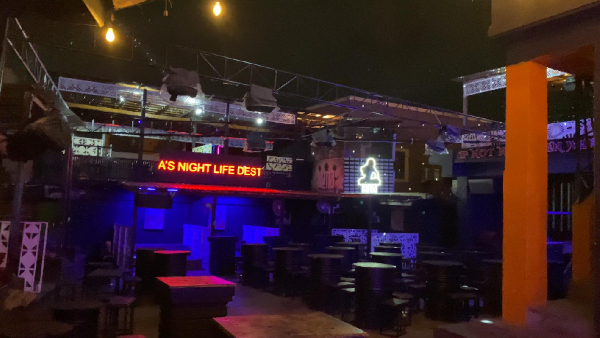Usually on Friday nights, Osu Oxford Street, a place that never sleeps, comes alive.
Music blares from the clubs, neon lights reflect off passing cars, and crowds of partygoers flood the street, ready to dance away the week’s stress.
In recent times, the usual excitement has been missing from Osu Oxford Street, as the heart of Accra’s nightlife has gone quiet.
A city-wide noise-making ban, enforced by the Ga Traditional Council, has hit Osu hard, and the impact is loud, even in the silence.
The ban, which took effect on May 12, 2025, and is expected to end on June 12, 2025, is part of traditional preparations for the Homowo Festival.
The Ga community observe this cultural practice annually as a time for peace, reflection, and spiritual preparation.
Homowo, meaning “hooting at hunger,” is celebrated to thank the gods for a bountiful harvest and to honour Ga ancestors.
The ban, protected under Article 11(3) in Ghana’s constitution, recognises customary law, while Article 26(1) guarantees every community the right to maintain and preserve its cultural heritage.
In Osu, however, where nightlife is not just entertainment but also a vital part of the local economy, the ban has left many residents and visitors confused, disappointed, and financially strained.
Some partygoers who showed up in Osu over the weekend said they had no idea a noise-making ban was in effect.
Many had travelled from far away hoping to enjoy the usual vibrant scene, only to find silent clubs and nearly empty pubs.
One patron stated that they are still out despite the ban, primarily for the food, although they admitted that music would have enhanced the experience.
“I’m here just for the food and to relax. I’m okay without the music, but it would have made it better,” they said.
Another visitor expressed how the silence has affected his usual Friday night enjoyment.
“I want music, music can make me drink more than what I am drinking so it has affected me. When there is music, I can take about four to five bottles but right now I’m even struggling with one,” he said.
The ban has not only affected the vibe but also hit hard at the businesses that come alive after dark.
A supervisor at one of Osu’s most popular and busy pubs, known for drawing huge crowds every weekend, shared how things have changed.
“The market is slow and some people when they come and there is no music, they just go, some too sit for a while and take just a bottle of drink, and it is affecting the business. Income has dropped because no one is buying anything, unlike before when consumers troop in and buy lots of stuff,” the supervisor of the pub complained.
A walk along Oxford Street paints the full picture.
The once vibrant road was quiet, the kind of quiet you don’t expect from a place like Osu on a Friday night.
There were fewer people on the street, and the usual sound of thumping music had been replaced by the hum of car engines and the occasional honk.
But perhaps the most shocking scene was at the ever-busy KONA, a club that is normally packed to the brim.
On this night, it was empty, not a single person inside. Waitresses who would usually be running around with orders were seen standing outside, chatting among themselves and trying to invite passersby to come inside for a drink.
It was clear: the silence had taken over even the loudest parts of Osu.
However, not every place was hit the same way.
Just around the corner, Republic Bar stood tall in quiet defiance. Known for its loyal customer base, the bar was full even without music.
Patrons at this pub sat in groups, enjoying drinks, chatting, and making the most out of the calm atmosphere.
AK/EB
Also, watch an exclusive interview with Ayisi on the latest edition of Talkertainment below:
